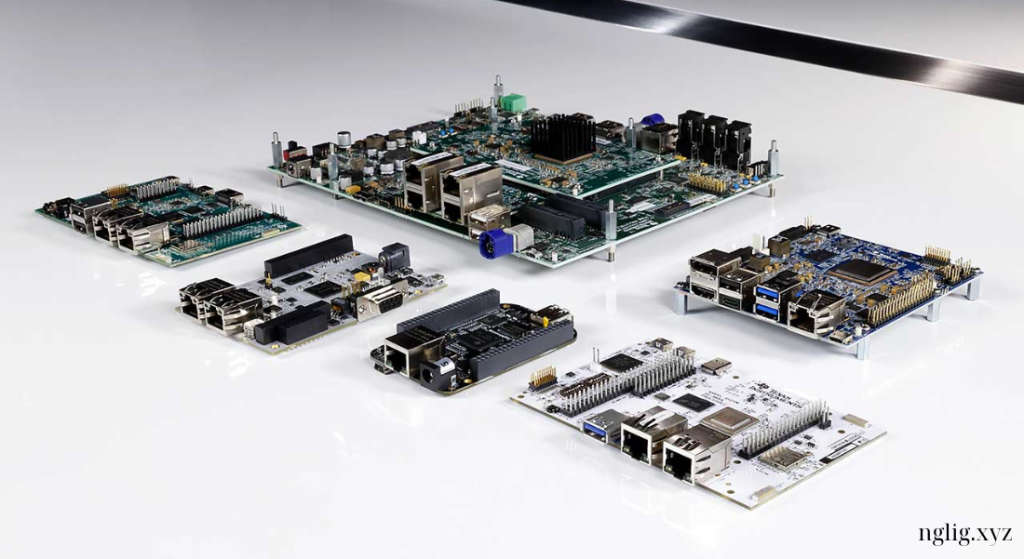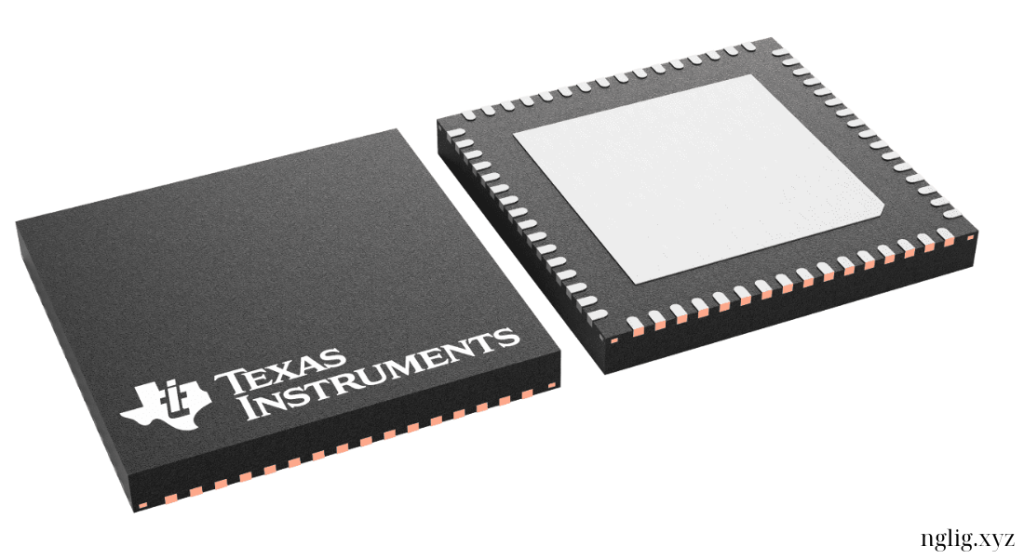In the rapidly evolving landscape of electronics, the role of microcontrollers is pivotal in driving innovation and functionality in various devices. Texas Instruments (TI) stands out as a leading manufacturer of microcontrollers, offering a diverse range of solutions that cater to a wide array of applications. From powering simple consumer gadgets to enabling complex industrial systems, TI microcontrollers provide the performance and features necessary to streamline your projects effectively. This article will explore the extensive benefits of integrating TI microcontrollers into your electronic designs, delving into their key features, applications across industries, and best practices for implementation.
Key Highlights
- Overview of TI Microcontrollers: An in-depth look at the types of microcontrollers available from Texas Instruments.
- Key Features and Benefits: Understanding the essential features that make TI microcontrollers powerful tools for developers.
- Applications Across Industries: How TI microcontrollers are utilized in various sectors to improve connectivity and functionality.
- Best Practices for Integration: Tips for effectively implementing TI microcontrollers in your projects.
- Evaluating Your Project Needs: Techniques for selecting the right TI microcontroller for your specific application.
1. Overview of TI Microcontrollers: A Comprehensive Look
Texas Instruments offers a wide range of microcontrollers designed to meet the diverse needs of engineers and developers across multiple industries. Their product lines include:
- MSP430 Microcontrollers: The MSP430 family is known for its ultra-low-power consumption, making it ideal for battery-operated devices and applications where energy efficiency is paramount. These microcontrollers are often used in portable medical devices, sensor networks, and environmental monitoring.
- Tiva C Series Microcontrollers: The Tiva C series provides a robust architecture for high-performance applications. With ARM Cortex-M4 cores, these microcontrollers are suitable for applications requiring complex computations and real-time processing, such as industrial automation, robotics, and motor control.
- C2000 Real-Time Microcontrollers: C2000 microcontrollers are specifically designed for real-time control applications. They excel in power conversion, motor control, and digital signal processing, making them an excellent choice for applications like renewable energy systems and electric vehicles.
- SimpleLink Microcontrollers: These microcontrollers come equipped with integrated wireless connectivity options, such as Wi-Fi, Bluetooth, and Zigbee, making them perfect for IoT applications. SimpleLink solutions simplify the development of connected devices by providing built-in support for various communication protocols.
2. Key Features and Benefits: Powering Your Projects
Integrating TI microcontrollers into your designs offers numerous advantages that can significantly enhance project outcomes:
- Energy Efficiency: TI’s MSP430 series is particularly noted for its low power consumption, which is crucial for battery-powered applications. These microcontrollers feature various low-power modes that help extend battery life, allowing devices to operate longer between charges.
- High Performance: The Tiva C and C2000 series microcontrollers provide high processing power with advanced features such as floating-point units and real-time control capabilities. This performance is essential for applications that require fast data processing and quick response times, such as robotics and automotive systems.
- Rich Peripheral Integration: TI microcontrollers come with a variety of integrated peripherals, including ADCs, DACs, timers, and communication interfaces like I2C, SPI, and UART. This rich integration simplifies system design and reduces the need for external components, allowing for smaller and more efficient designs.
- Robust Development Ecosystem: Texas Instruments provides a comprehensive set of development tools, including software libraries, integrated development environments (IDEs), and evaluation modules. These resources facilitate a smoother development process, helping engineers bring their ideas to life more efficiently.

3. Applications Across Industries: Versatile Usage
TI microcontrollers are widely used in various applications across multiple industries, demonstrating their versatility and effectiveness:
- Consumer Electronics: TI microcontrollers play a vital role in smart appliances, wearable devices, and other consumer electronics, enabling intelligent features and connectivity that enhance user experiences.
- Automotive: In the automotive sector, TI microcontrollers are used for a wide range of applications, including advanced driver-assistance systems (ADAS), infotainment systems, and motor control in electric and hybrid vehicles. Their robustness and reliability are crucial in ensuring vehicle safety and performance.
- Industrial Automation: TI microcontrollers enable automation in industrial applications, powering machinery and equipment while providing precise control and monitoring capabilities. They are essential in applications such as process control, robotics, and machine vision systems.
- Healthcare: In medical devices, TI microcontrollers support functions such as patient monitoring, diagnostics, and imaging systems. Their high precision and low power consumption are critical for delivering accurate and reliable health data.
4. Best Practices for Integration: Ensuring Successful Adoption
To effectively integrate TI microcontrollers into your projects, consider the following best practices:
- Define Your Requirements: Clearly outline the performance, power, and connectivity needs of your application. This understanding will guide your component selection and design process.
- Select the Right Microcontroller: Choose a TI microcontroller that aligns with your project specifications. Consider factors such as processing power, memory, peripheral requirements, and power consumption.
- Leverage Development Tools: Utilize TI’s development tools and resources, such as Code Composer Studio IDE and TI’s software libraries, to streamline the development process and enhance productivity.
- Test and Validate: Implement rigorous testing procedures to ensure that the microcontroller performs as expected in real-world conditions. Validate the design against the initial requirements to confirm its reliability and performance.
5. Evaluating Your Project Needs: Selecting the Right Microcontroller
When choosing a TI microcontroller for your project, it’s essential to evaluate your specific needs:
- Performance Requirements: Determine the processing power required for your application. For demanding tasks, consider higher-end microcontrollers like the Tiva C series or C2000.
- Power Consumption: Assess the power requirements of your project, especially for battery-operated devices. Low-power microcontrollers like the MSP430 can provide significant advantages in energy efficiency.
- Peripheral Needs: Identify the necessary peripherals for your application. Ensure that the selected microcontroller has the required interfaces and capabilities to meet your design specifications.
- Cost Considerations: Consider your budget and the total cost of ownership, including development tools, licensing, and potential production costs.
Conclusion
Integrating TI microcontrollers into your electronic designs can significantly enhance performance, efficiency, and reliability. With a diverse range of products tailored to various applications and robust features that ensure precision and reliability, TI microcontrollers empower designers to create cutting-edge products. By leveraging TI’s technology, you can elevate your designs to meet the demands of today’s fast-paced electronic landscape.
FAQ
- What types of microcontrollers does TI offer?
TI provides a variety of microcontrollers, including MSP430, Tiva C Series, C2000, and SimpleLink microcontrollers, each designed for specific applications. - How can TI microcontrollers improve my design?
TI microcontrollers enhance performance, energy efficiency, and compactness, while also providing scalability for various applications. - Are TI microcontrollers suitable for automotive applications?
Yes, TI microcontrollers are designed to meet the stringent requirements of automotive applications, offering robustness and reliability. - Where can I find support for integrating TI microcontrollers?
TI offers extensive technical support, including development tools, evaluation modules, and documentation to assist with integration. - How do I select the right TI microcontroller for my application?
Consider your application’s specific requirements, including performance, power consumption, and peripheral needs, and consult TI’s resources for guidance.

